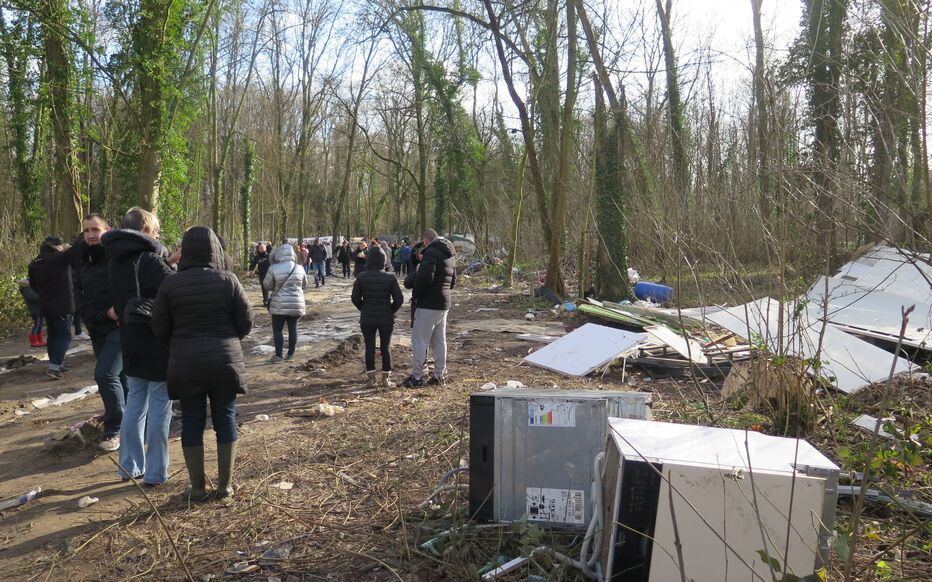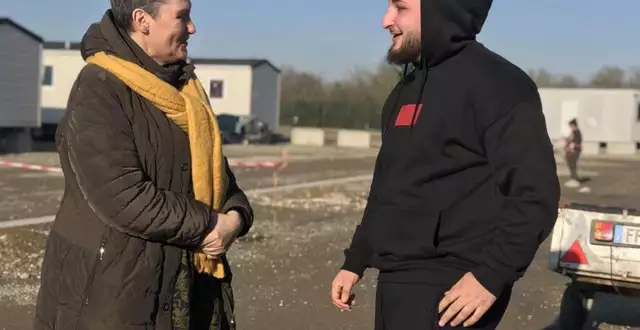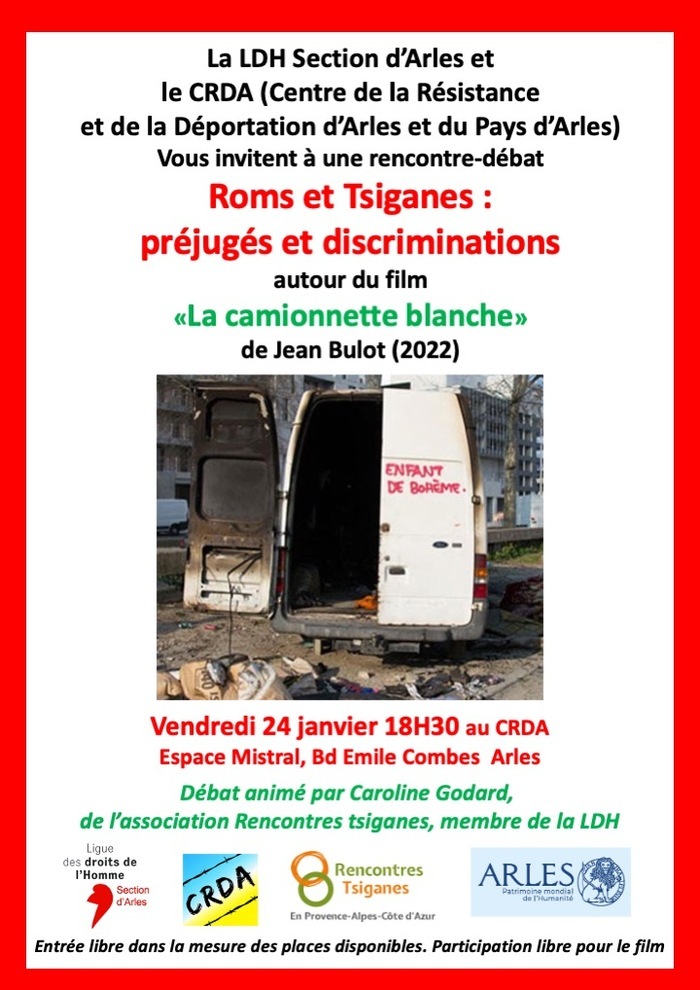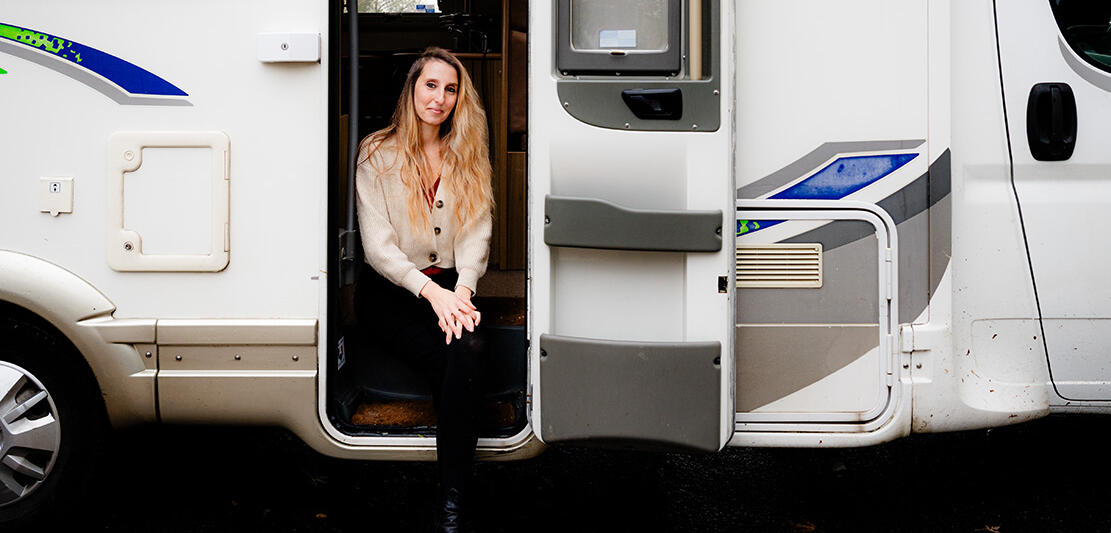Numerous French newspapers report about the announced eviction of the Rroma settlement of Bobigny. The settlement, which houses several hundred Rroma, is one of the oldest of its kind in the department of Seine-Saint-Denis. It is and was also the scene of ongoing debates between the public authorities and organisations working for the rights of the Rroma. Bobigny was firmly in the hands of communist politicians since 1944. Stéphane de Paoli, the first UDI mayor of the city, promised during the election campaign to immediately close down informal settlements if hygiene or safety deficiencies could be determined and to officially recognise the illegal character of the informal settlements: “The regional court of Bobigny, competent in the matter since the occupied premises were not used publicly, communicated its judgment on July the 2nd. Relief in the camp of the Roma: the tribunal rejected the request of the mayor. “But five days later, Stéphane de Paoli sent a new bailiff to the camp … And in mid-August he issued a decree for eviction, with which he set at defiance the court’s verdict. He reckoned, I think, that everyone was on holidays, tells the lawyer Tamara Lowy”” (Mouillard/Piquemal 2014). The prefect responsible for social equality, Didier Leschi, says he applied the compulsory social diagnosis according to the regulations. The state will continue to support about a dozen families, who have stable incomes, among others with social housing. However, Véronique Decker, director of the primary school in Bobigny, criticised the fact that the majority of families, some sixty of them, will be on the street after the eviction. The social diagnosis is therefore far from being applied satisfactorily. It is important to emphasise that the forced evacuations of informal settlements complicate a long-term integration of Rroma immigrants. Due to the forced evictions, the existing problems and the integration question are simply moved from one location to the next, but not solved. Particularly affected by the evacuations are the children, who often visit local schools, and are greatly disturbed in their education. The rigorous expulsion of Rroma immigrants reflects the unwillingness of the French government to engage in an active, long-term integration policy. Furthermore, by the one-sided media focus on the informal settlements it is suggested that there are only Rroma belonging to the lower class, which are poorly educated. However, the Rroma from the slums – an estimated 15,000 people – only represent a minority of the minority in France. According to assessments of the Rroma Foundation, 100,000 to 500,000 Rroma live unobtrusively and integrated in French society. They belong to all social strata and are not perceived by the French media and politics. For fear of discrimination, many of these integrated Rroma keep their identity a secret.
Amnesty International (2014) points out that the evictions also violate human rights, when the displaced persons are without accommodation after the evacuation. Only a part of the residents were offered alternative accommodation. Amnesty International speaks of a third of the current residents. There are primarily those families who have children in school age. However, many of the accommodations offered are not suitable to accommodate families, or are very far away from Bobigny (compare 20 Minutes France 2014, Mediapart 2014).
In the early afternoon of October the 21st, the inhabitants of the settlement were prompted by a large contingent of riot police to leave the camp. The eviction proceeded quietly, as the journalists present state. Towards the evening, a group of around fifty Rroma, among them many children, gathered on the Place de la Republique in Paris, and demonstrated for temporary accommodation. Later that evening, they took refuge in the hospital Saint-Louis, from where they were also evicted by the riot police a little later (Mouillard / Hullot-Guiot 2014, Le Monde 2014). Le Parisien (2014) complements that several dozen families were able to move into a Paris gym, as temporary shelter, after 23 o’clock. The gym was provided the city government of Paris (compare Fikri 2014, Metronews 2014).
- 20 Minutes France (2014) Seine-Saint-Denis: Mobilisation contre l’évacuation d’un des plus anciens camp de Roms. In: 20 Minutes online vom 20.10.2014. http://www.20minutes.fr/paris/1464543-20141020-seine-saint-denis-mobilisation-contre-evacuation-plus-anciens-camp-roms
- Amnesty International (2014) L’expulsion d’un campement près de Paris laissera des familles sans abri. In: Amnesty International online vom 20.10.2014. http://www.amnesty.ch/fr/pays/europe-asie-centrale/france/docs/2014/l-expulsion-d-un-campement-pres-de-paris-laissera-des-familles-roms-sans-abri
- Fikri, Mehdi (2014) Retour à l’errance pour les Roms des Coquetiers. In: L’Humanité online vom 22.10.2014. http://www.humanite.fr/retour-lerrance-pour-les-roms-des-coquetiers-555409
- Le Monde (2014) Evacuation d’un des plus anciens campements roms de Seine-Saint-Denis. In: Le Monde online vom 21.10.2014. http://www.lemonde.fr/societe/article/2014/10/21/evacuation-de-l-un-des-plus-anciens-campements-roms-de-seine-saint-denis_4509973_3224.html
- Le Parisien (2014) Expulsés de leur campement, les roms de Bobigny ont dormi dans un gymnase à Paris. In: Le Parisien online vom 22.10.2014. http://www.leparisien.fr/paris-75/expulses-de-leur-campement-les-roms-de-bobigny-ont-dormi-dans-un-gymnase-a-paris-22-10-2014-4232631.php
- Mediapart (2014) Les 90 familles roms du camp des Coquetiers seront expulsées le 21 octobre à 6h. In: Mediapart online vom 20.10.2014. http://blogs.mediapart.fr/edition/roms-et-qui-dautre/article/201014/les-90-familles-roms-du-camp-des-coquetiers-seront-expulsees-le-21-octobre-6h
- Metronews (2014) Des familles roms condamnées à l’errance dans Paris après l’expulsion de leur camp. In: Metronews online vom 22.10.2014. http://www.metronews.fr/info/des-familles-roms-condamnees-a-l-errance-dans-paris-apres-l-expulsion-de-leur-camp/mnjv!NHyJ4RmBfTueM/
- Mouillard, Sylvain/Piquemal, Marie (2014) Le campement de Roms de Bobigny expulsé «dans les 48 heures». In: Libération online vom 20.10.2014. http://www.liberation.fr/societe/2014/10/20/le-campement-de-roms-de-bobigny-expulse-dans-les-48-heures_1125918
- Mouillard, Sylvain/Hullot-Guiot, Kim (2014) Le campement de Roms de Bobigny démantelé, plusieurs familles à la rue. In: In: Libération online vom 21.10.2014. http://www.liberation.fr/societe/2014/10/21/l-expulsion-du-campement-de-roms-de-bobigny-a-debute_1126389







